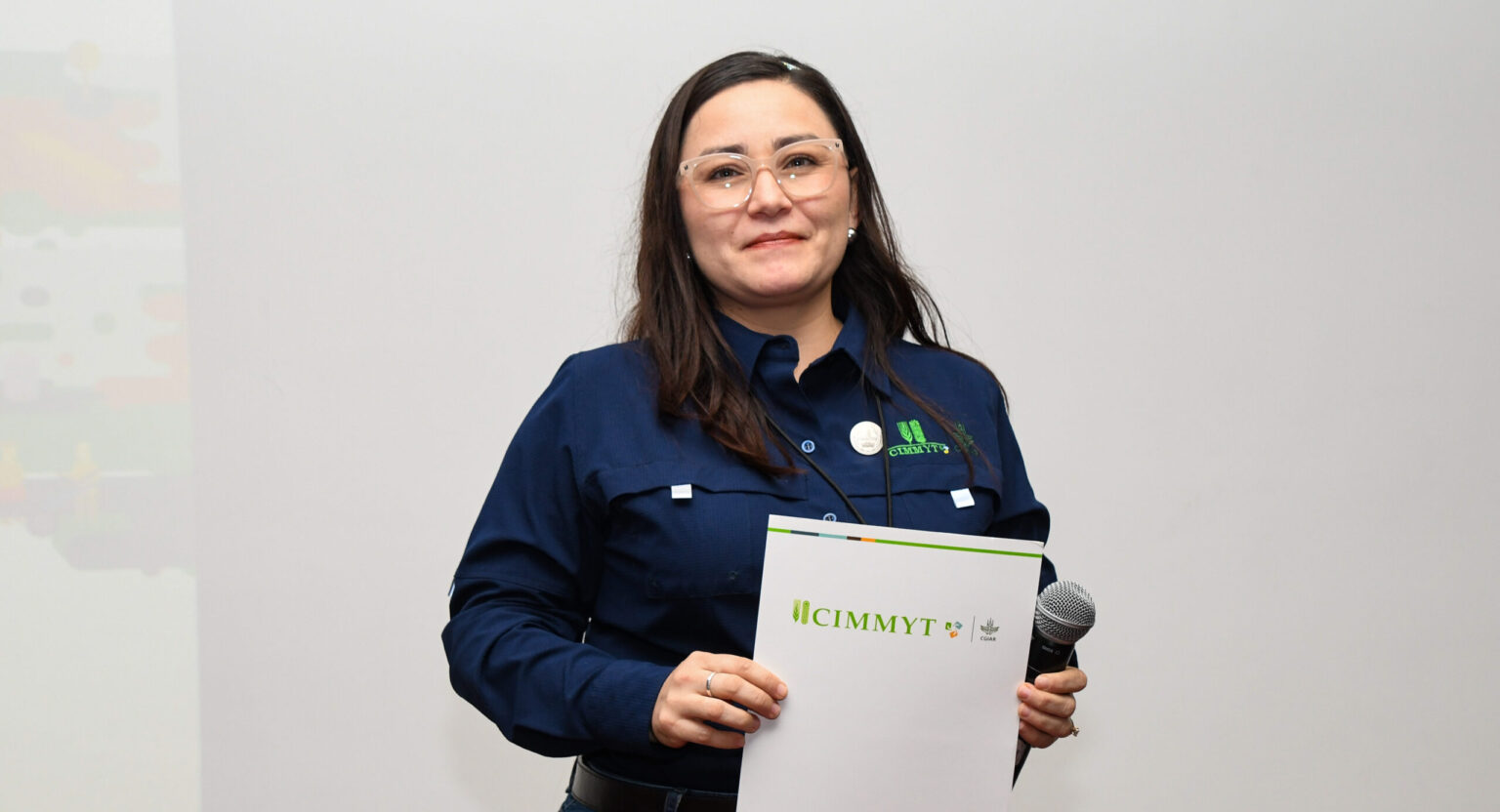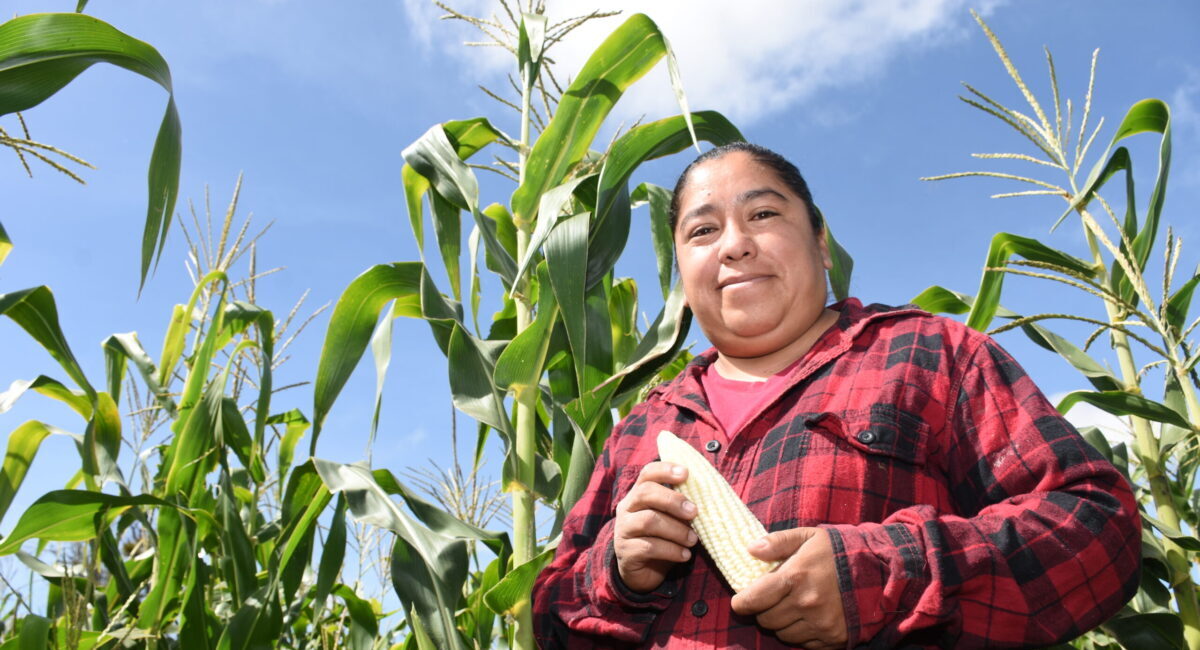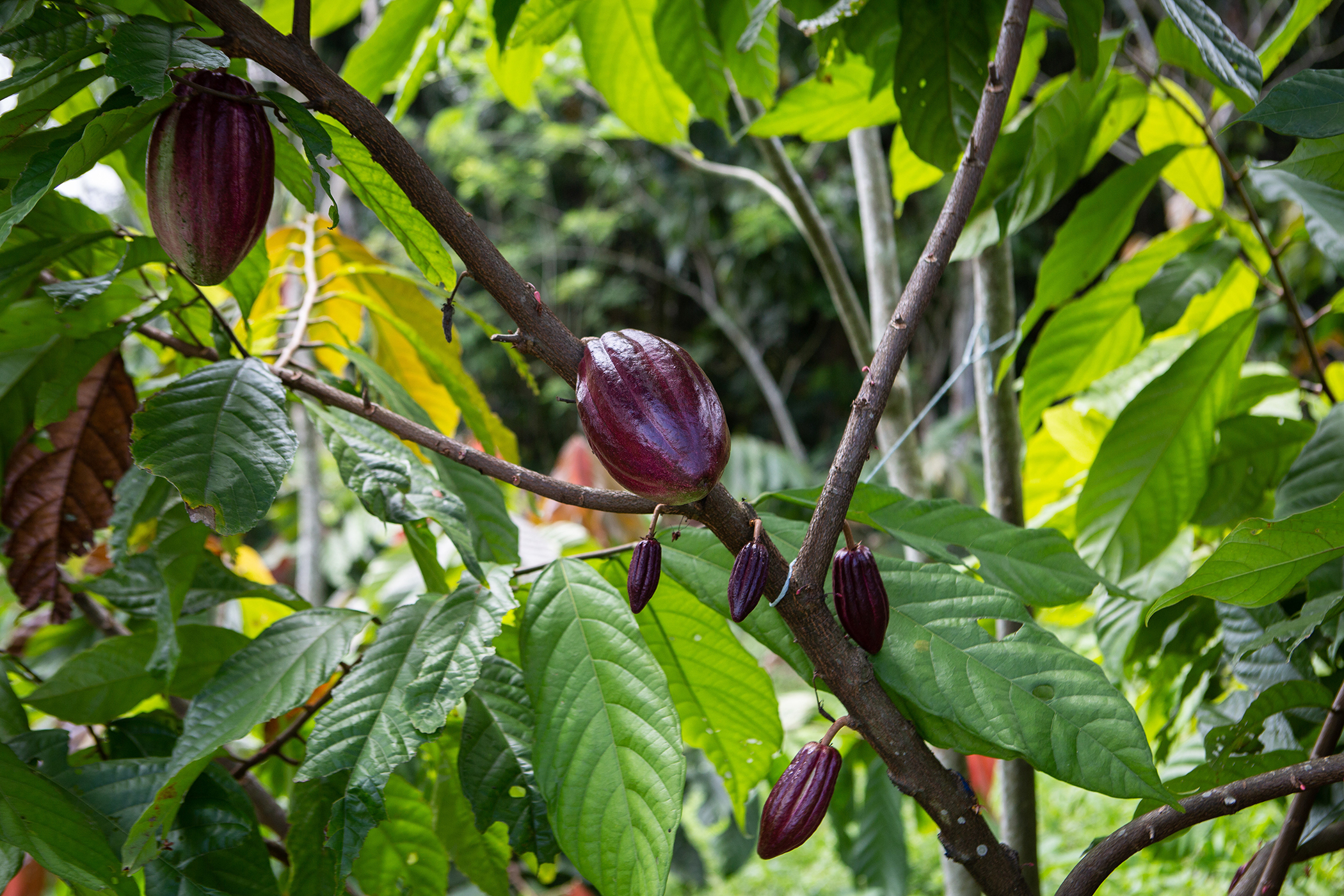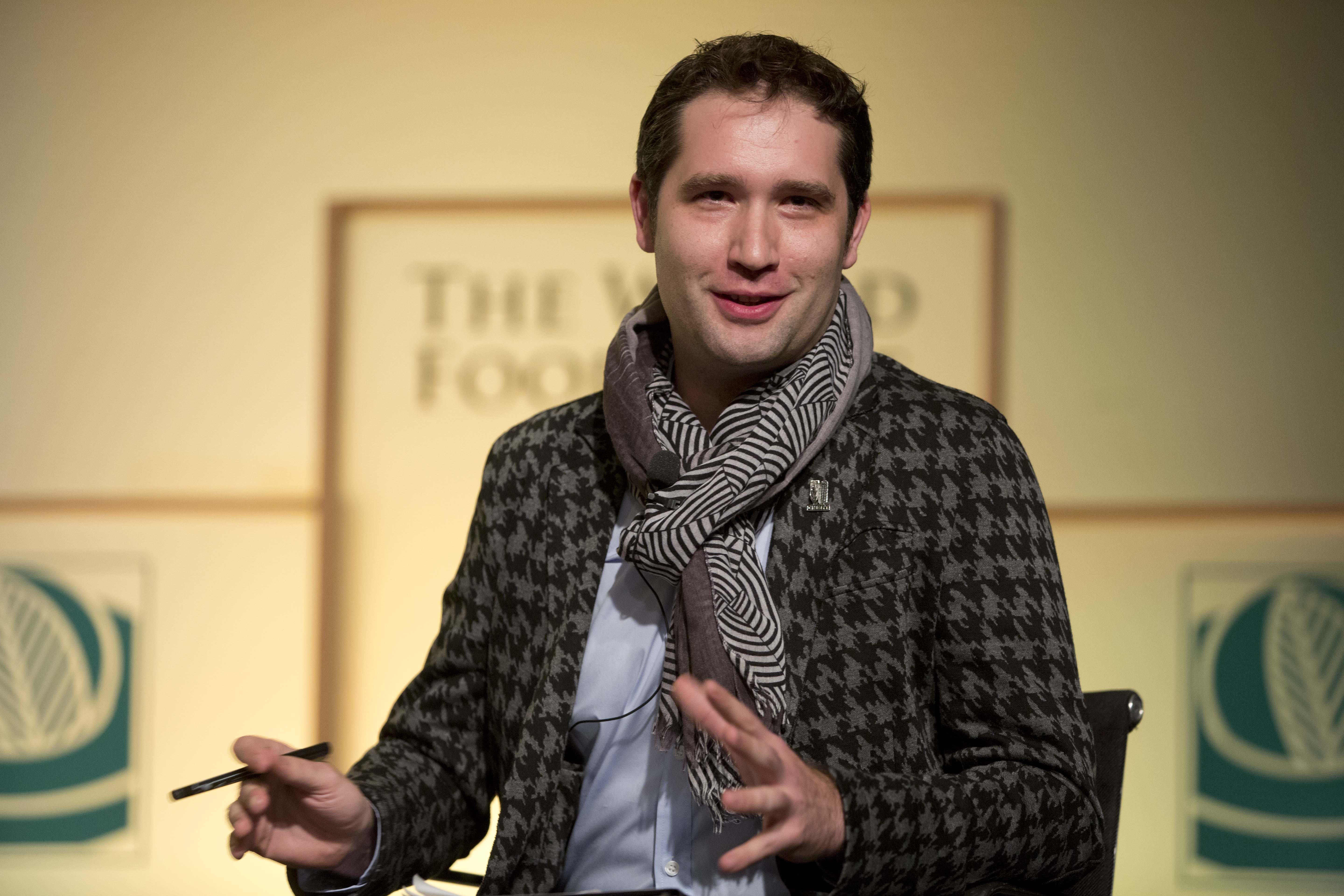Carolina Cortez is an agronomist specializing in agricultural parasitology and currently serves as the technical coordinator at CIMMYT’s Pacific-North Hub. Her career reflects the dedication, knowledge, and perseverance required to transform perceptions of women’s roles in the agricultural sector.
With a strong foundation in science and a passion for sustainable farming, Carolina has become a key figure in coordinating technical efforts that support farmers across northern Mexico. Her leadership not only addresses critical challenges in crop protection and productivity but also inspires a new generation of women to pursue careers in agricultural research and innovation.

From her childhood in Sinaloa, she grew up surrounded by crops such as maize, wheat, beans, and sorghum, which sparked her natural interest in agronomy. “One of the main reasons I decided to study agronomy was the environment in which I was born. I grew up in a family of farmers where our family gatherings mainly revolved around discussions about the crops of each agricultural cycle,” she recalls. This close connection to the field led her to enroll at the Autonomous University of Chapingo, where she graduated in agronomy in 2015.
However, her career path has not been without challenges. Despite her knowledge and experience, she has encountered resistance in a sector where traditional ideas about women’s roles in agriculture persist. “The biggest challenge I have faced is getting both farmers and technicians to accept that a woman can oversee or implement new agricultural initiatives. The prevailing perception in some areas is still that agriculture is only for men,” she explains.
Over time, however, she has proven that ability and commitment do not depend on gender, but on preparation and dedication. “As time goes by and we start doing experiments or involving them in field trials, once they see the results, their perspective completely changes, and they realize the need to include women in the agricultural sector,” she adds.
Throughout her career, she has witnessed a growing interest from women in agronomy, not only in technical and field work but also in administrative and managerial roles that strengthen the sector. “Not only are more women enrolling in agronomy programs, but they are also entering administrative areas that support the agricultural sector. This is essential for increasing the visibility of women in agriculture,” she says.
She also believes that the scientific advancements driven by women have been key to opening up new opportunities and challenging existing paradigms. Her work at CIMMYT as technical lead for projects in Sinaloa, in collaboration with companies such as BIMBO, Kellogg’s, and Ingredion, has been a turning point in her career. “One of my achievements has been to serve as the technical lead for CIMMYT projects developed in Sinaloa in recent years. Additionally, I have been a lecturer in training courses on conservation agriculture, regenerative agriculture, and cover crops,” she explains.
For all these reasons, she stresses the importance of professional training and the development of communication skills for young women aspiring to enter the field of agronomy. “I encourage them not to give up on entering this beautiful profession. They should firmly establish their principles, professional integrity, and long-term goals in the agricultural sector, as these will be the foundation for seeking opportunities for integration and applying their acquired knowledge,” she advises.
Finally, she emphasizes the importance of continuous learning and building personal confidence. “I recommend that they begin professional preparation on innovative topics and develop personal confidence. Standing in front of farmers, technicians, and an audience requires fluency and confidence in speaking, which can only be achieved through knowledge and scientific support,” she concludes.
Carolina’s story is a testament to the impact women have in agriculture and serves as an inspiration to continue promoting female leadership in a sector that is constantly evolving.

 Environmental health and biodiversity
Environmental health and biodiversity 
